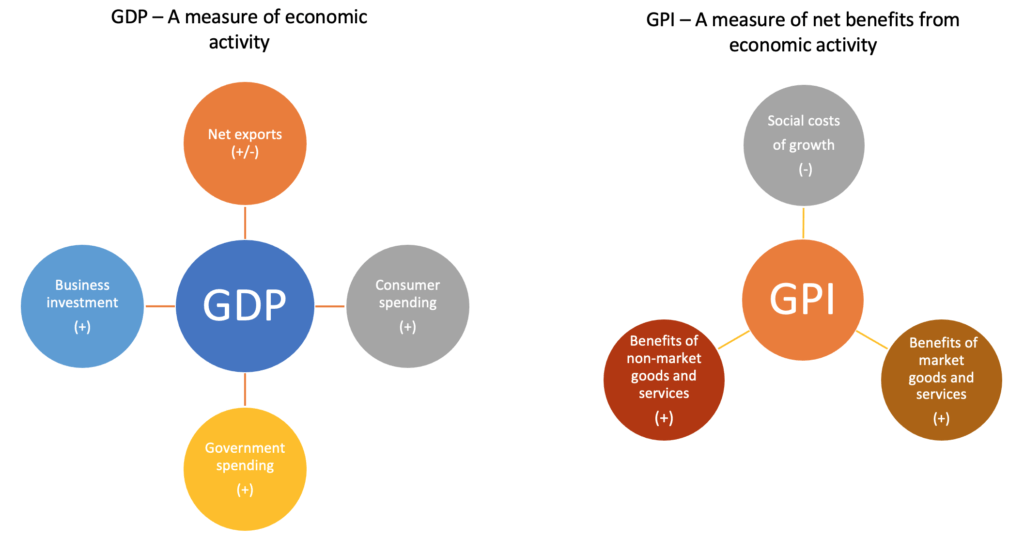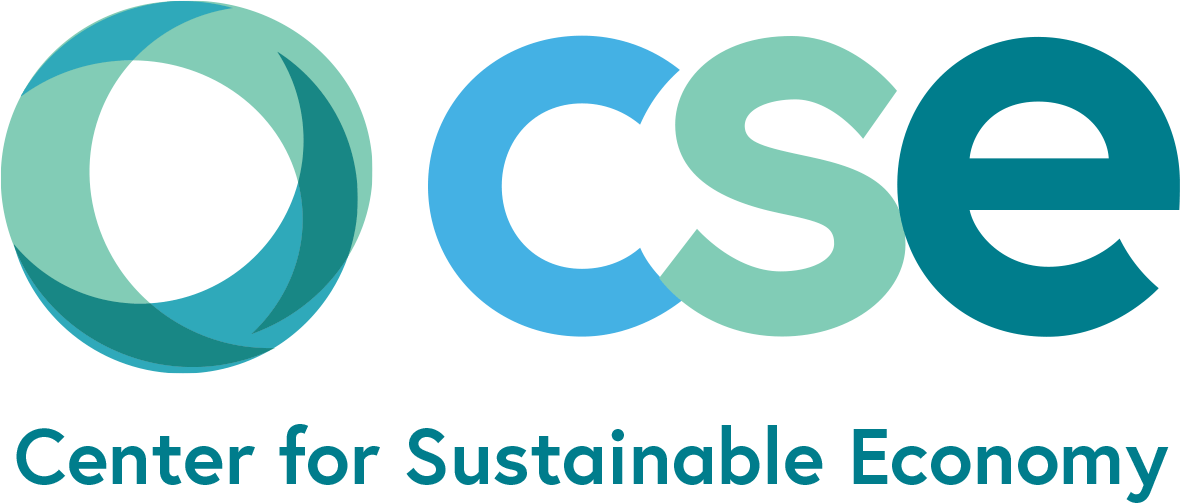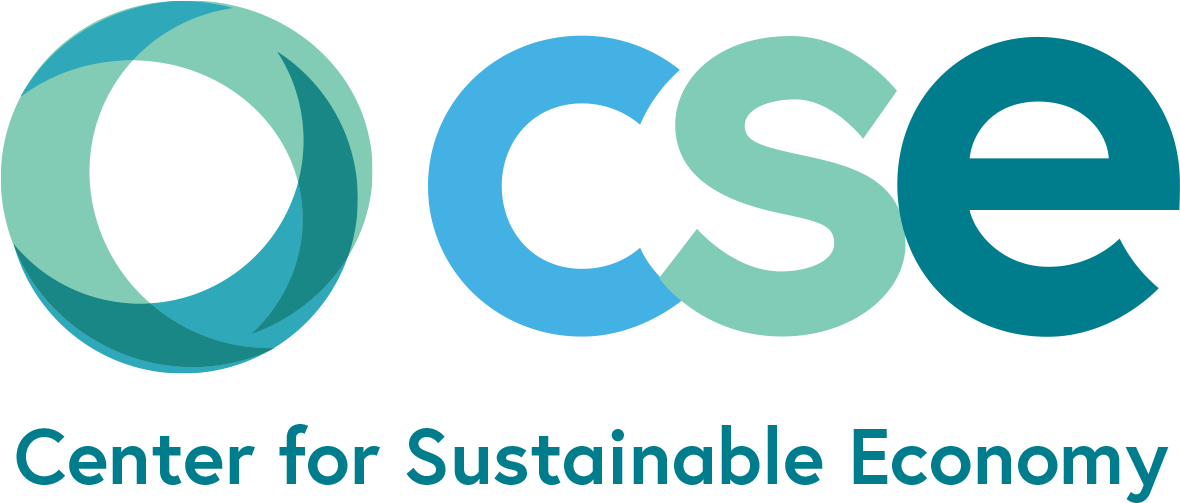Ilhan Omar just introduced a bill to make people and the planet priorities for economic policy
John Talberth • September 20, 2023

Legislation update September 2023: After garnering the support of NGOs and five co-sponsors, Rep. Omar is now exploring options for reintroduction of the GPI Act in 2024 or possible inclusion of key components of the bill in appropriations language. Stay tuned here for further updates as the reintroduction date approaches.
Original post July 2021:
On July 30th, Representative Ilhan Omar (D-MN) introduced the GPI Act of 2021, directing the Secretary of Commerce to establish a new metric for measuring US economic performance, setting budget priorities and guiding policy– the Genuine Progress Indicator. If her bill becomes law, the GPI would effectively unseat Gross Domestic Product (GDP) as the nation’s leading economic indicator, a reform long sought after by politicians, economists and civil society. Rep. Omar was joined by five House co-sponsors including Jamaal Bowman, Cori Bush, Dwight Evans, Pramila Jaypal and Marie Newman.
Against the backdrop of a global pandemic and on the heels of one of the nation’s most fractured and contentious election cycles, the world of economic indicators may seem distant and esoteric, irrelevant to struggles Americans are facing every day. But the legislation is, in fact, revolutionary and transformative, signaling a long overdue shift in economic priorities away from the bottom-line profits of Wall Street corporations and towards improving economic conditions for those least well off and ordinary American households. With Biden-Harris now at the helm, this new metric should be a centerpiece of the administration’s economic policies.
Despite its many logical failings and fallacies, Gross Domestic Product (GDP) and its state-level counterparts still reign as the most ubiquitous measures of economic performance. It works well for the world’s elites who own the means of production because when GDP grows it means more buying and selling from which they profit. But more buying and selling is not always a good thing.
Sometimes it represents something that is truly beneficial (healthy food and experiences in nature) and other times it represents a cost we’d rather avoid (inflated health insurance premiums) or expenditures that reflect growing insecurity around us (guns and burglar alarms). GDP does not differentiate between costs and benefits; it considers all spending beneficial and as such provides an extremely poor measure of economic wellbeing.

GDP also overlooks valuable dimensions of the economy that are not priced in formal markets. We all benefit from the fruits of higher education, modern infrastructure, healthy natural ecosystems and from vast amounts of unpaid labor in the form of carework, volunteering, and neighbors helping neighbors. Just because this labor is volunteered does not mean it does not have economic value. GDP is also blind to economic inequality. As it has often in the past, a growing GDP may reflect vast increases in wealth and conspicuous consumption of the 1% while the vast majority of Americans feel the pain of economic insecurity and deteriorating quality of life.
Rep. Omar’s bill would go a long way towards rectifying these shortcomings. As developed by the Secretary of Commerce, the overriding goal of the new metric would be to provide an estimate of the net benefits of economic activity (benefits minus costs) and a far more complete accounting of the many non-market dimensions to economic wellbeing overlooked by GDP – time spent with family and friends, the value of water produced and filtered by intact forests and wetlands, or the enormous economic returns from high speed internet. It would also incorporate estimates of the ever-growing social costs of inequality, pollution, deforestation, climate change and a host of social ills including homelessness (Figure below).
As a direct monetary measure of economic wellbeing, the GPI can and should be used alongside GDP in the President’s Annual Economic Report, Office of Management and Budget’s federal budget, in the benefit-cost analysis of federal spending and regulations. Rep. Omar’s bill would require use of the new metric in these and other policy settings.
Robert F. Kennedy Jr. was one of the earliest proponents for a tectonic shift away from GDP growth as the foundation for economic policy (Box). Rep. Omar’s bill – the GPI Act of 2020 – would bring Kennedy’s vision to fruition. The bill rests on a solid foundation of GPI initiatives in Maryland, Vermont, Washington, Minnesota and many other states. As these initiatives have shown, the GPI is not some abstract theoretical framework, but one that can be used by decision makers at all levels to guide budgeting and economic policy making. Given this, Congress should embrace and pass the GPI Act of 2021 and get to the hard work of refocusing the vast economic power of the federal government on advancing genuine progress for all rather than growing GDP for the wealthiest Americans.

READ THE PRESS RELEASES
READ THE BILL:
UNDERSTAND THE SCIENTIFIC FOUNDATIONS:
- Lawn (2003) – Theoretical foundations of the GPI
- Kubiszewskiet al. (2013) – Beyond GDP: Measuring and achieving global genuine progress
- Talberth and Weisdorf (2017) – GPI 2.0 for the US, Maryland and Baltimore
GPI NEWS AND VIEWS:
Share Post
All Rights Reserved | Center for Sustainable Economy


